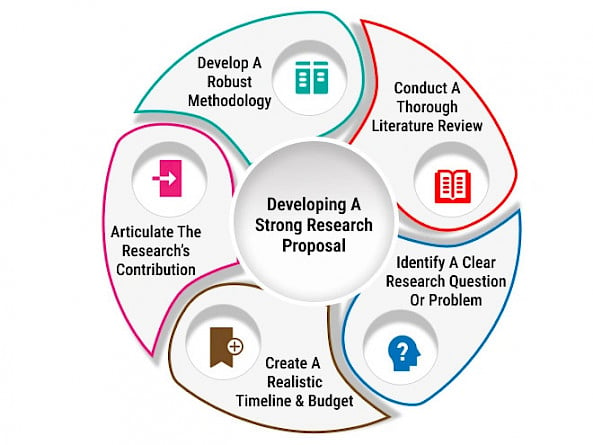Why Corporate Leaders Pursue a Ph.D. in Management? Redefining Business Policy with Research

Blog / May 23, 2025
Ph.D. in ManagementWhy Ph.D.?Ph.D. purposeWith business models evolving rapidly, economic systems shifting, and industries disrupted by technology, the need for professionals who can not only manage change but also decode it through research has become urgent. Today’s world doesn’t just need managers—it needs thinkers, analysts, and innovators who can influence how organizations function, how policies are framed, and how leadership decisions are made.
This is where the Ph.D. in Management stands out—not as just another academic degree, but as a path for those who want to lead with knowledge, depth, and purpose.
Among the many options in business education, the Ph.D. in Management course is designed to take you beyond textbooks and case studies.
It prepares you to investigate real-world problems, design research that matters, and build a career that spans across teaching, consulting, corporate strategy, and public policy.
If you're planning your next academic move or aiming to transition from industry to research, this comprehensive guide will help you understand the eligibility for a Ph.D. in Management, course structure, scope, salaries, and everything you need to make an informed choice.

Source: https://gotoppr.com/
Table of Contents
- All About Ph.D. in Management
- Why More Leaders and Learners are Pursuing Ph.D. in Management
- The Purpose of a Ph.D. in Management
- Eligibility Criteria for a Ph.D. in Management
- Major Entrance Exams for Ph.D. in Management
- Ph.D. in Management Entrance Exams Preparation
- Complete Admission Process for Ph.D. in Management
- Full-Time, Part-Time, or Executive Ph.D. in Management: Choosing the Right Format
- Ph.D. in Management Course Duration and Program Design
- Ph.D. in Management: Impact on Business, Society, and Policy
- Busting Myths about the Ph.D. in Management
- Career Scope after a Ph.D. in Management
- Choosing the Right Institution: What to Look for Beyond Rankings
- The Premium Choice for Ph.D. in Management: Shiv Nadar University (Institution of Eminence)
- Conclusion
- FAQs
All About Ph.D. in Management
|
Course Level |
Doctoral (Ph.D.) |
|
Course Name |
Ph.D. in Management |
|
Duration |
3-6 years |
|
Full Form |
Doctor of Philosophy in Management |
|
Eligibility |
Postgraduate degree (MBA/PGDM/M.Com) with 55-60% marks |
|
Entrance Exam |
UGC NET, GATE, CAT, GMAT, University-specific tests |
|
Admission Process |
Entrance exam + SOP + Interview + Research Proposal |
|
Tuition Fee |
INR40,000 - INR10 lakhs (varies by university) |
Why More Leaders and Learners are Pursuing Ph.D. in Management
What’s the real value of a Ph.D. in Management in today’s world?
Is it only for people who want to teach? Is it worth the time, effort, and money? If you’re asking these questions, you’re not alone.
Many students and professionals want more than just an MBA. They want to research problems that matter. They want to shape business thinking, not just follow it. In 2025, this is where the Ph.D. in Management stands tall. It's no longer just a degree for professors. It’s for those who want to dive deep into how companies grow, how leaders make decisions, and how policies shape markets.
The Purpose of a Ph.D. in Management
This degree is about more than lectures and classrooms. You’re not just studying business. You’re building models that others use. You’re making sense of complex systems, solving new-age problems, and creating knowledge that drives action.
Today, this degree is a launchpad for careers in:
- Strategic consulting
- Research-driven leadership
- Corporate governance
- Public policy and think tanks
- Business innovation hubs
Eligibility Criteria for a Ph.D. in Management
Before you apply, you need to know if you meet the eligibility requirements for a Ph.D. in Management and what top universities look for. Here’s a general checklist most universities in India follow:
- A postgraduate degree (MBA, M.Com, PGDM, or equivalent)
- At least 55-60% marks in your master's
- Good research and writing skills
- A research proposal aligned with current topics
- Entrance test score (like UGC NET, CAT, GMAT, or university-level tests)
- A personal interview
Apart from these eligibility requirements, some top universities like Shiv Nadar University also look for key differentiators among the candidates:
- A strong academic record
- Alignment of your interests with faculty specializations
- A sharp Statement of Purpose that explains your motivation
- A willingness to collaborate across disciplines, for example, combining management with psychology, technology, or sustainability
- Strong communication and analytical thinking skills
- At least 2 years of work experience
Major Entrance Exams for Ph.D. in Management
To get into any Ph.D. in Management program in India, you need to qualify through national or institutional entrance tests. But not every university uses the same exams.
Here’s a list of the most accepted entrance exams:
|
Exam |
Used By |
|
UGC-NET |
Most public universities, some private ones |
|
CSIR-NET |
Applied science + research-based fields |
|
GATE |
Tech/quantitative research-focused program |
|
CAT |
IIMs and some top private schools |
|
GMAT/GRE |
Private/foreign-collaborative universities |
Ph.D. in Management Entrance Exams Preparation
Familiarize Yourself with the Exam Pattern
- Understand the Structure
- Identify Key Areas
Practice Past Papers
- Solve Previous Years’ Papers
- Analyze Your Performance
Take Mock Tests
- Simulate Exam Conditions
- Review and Improve
Understand University-Specific Requirements
- Check University Guidelines
- Adapt Your Preparation Plan
Stay Updated
- Newsletters
- Discussion Forums
Complete Admission Process for Ph.D. in Management
This is where most candidates either shine or stumble.
After you clear the entrance stage, universities want to know what kind of researcher you’ll be. That’s where your interview, SOP, and research proposal come in.
Your SOP should answer:
- Why do you want to pursue a Ph.D. in Management?
- Academic background
- What areas interest you?
- Your strengths and how it is relevant for accomplishing your goals
- Why this university?
- Future plans with Ph.D.
Your research proposal should focus on one core idea. It doesn’t need to be perfect, but it must:
- Show you understand the Ph.D. in Management scope
- Identify a research gap
- Explain how you plan to study the topic
Your final hurdle is usually a faculty panel interview. Here, they look for:
- Clarity of thought
- Understanding of your proposed topic
- Curiosity and passion for research
- Basic knowledge of research methods
Full-Time, Part-Time, or Executive Ph.D. in Management: Choosing the Right Format
Every learner is different. So are their schedules and career goals. A good Ph.D. in Management program offers options to suit your needs.
|
Mode |
Best For |
Key Features |
|
Full-Time |
Recent postgraduates, aspiring faculty |
Full-time commitment, 3-5 years |
|
Part-Time |
Working professionals |
Weekend or modular classes, 4-6 years |
|
Executive Ph.D. |
Senior managers, industry experts |
Focus on applied research, flexible timeline |
Ph.D. in Management Course Duration and Program Design
A Ph.D. in Management isn’t a quick degree. In most universities, it takes between 3 to 6 years, depending on the mode and your pace.
Here’s a basic breakdown:
Year 1: Coursework
- Research Methodology
- Statistics for Social Science
- Management Theories and Frameworks
- Domain Electives (e.g., marketing, HR)
Year 2: Research Proposal & Data Plan
- Proposal defence
- Literature review
- Research design (quantitative or qualitative)
Years 3–4: Field Work + Analysis
- Data collection
- Interviews, surveys, modelling
- Paper drafts
Year 5: Final Thesis & Viva
- Finalize findings
- Submit thesis
- Final viva
Ph.D. in Management: Impact on Business, Society, and Policy
A Ph.D. in Management isn’t about just writing a thesis. You’ll study real problems that affect real businesses and people. Your work may improve hiring practices, guide investor decisions, or shape sustainability plans.
Your research can focus on:
- Consumer psychology
- Leadership in crisis situations
- Data-driven decision making
- Financial risk modelling
- Organizational behavior during digital change
And this work doesn’t stop at publishing papers. You’ll be expected to:
- Present your findings at conferences
- Submit to peer-reviewed journals
- Create case studies used by MBA students and corporates
- Contribute to real-time policy analysis
Busting Myths about Ph.D. in Management
|
Myth |
Reality |
|
Only for teaching |
Opens careers in consulting, analytics, strategy, and public policy |
|
No value in the corporate world |
Builds skills in data analysis, research, and insight-driven decision-making |
|
Too long and slow |
Offers freedom to explore meaningful topics and lead in research and strategy |
Career Scope after a Ph.D. in Management
What kind of jobs will you be ready for after a Ph.D.?
It depends on your area of research and your goals. Here are some career paths open to Ph.D. holders in management:
Academia
- Assistant Professor
- Research Associate
- Academic Dean
Corporate Roles
- Chief Executive Officer (CEO), Chief Financial Officer (CFO), or Chief Operations Officer (COO)
- Strategic Manager/Director
- Director of Research/Insights
- Strategy Consultant
- Policy Advisor
- Business Analyst
- Business Development Manager
- Product Manager
Consulting
- Management Consultant
- Management Analyst
Other Opportunities
- Entrepreneurship
- Market Research Analyst
- Research Scientist
- Quantitative Analyst
- Policy Analyst
- Government and Non-profit Sector
Choosing the Right Institution: What to Look For Beyond Rankings
Picking the right university is about more than brochures and ranks. Here’s what to actually focus on:
- Faculty expertise
- Research culture
- Access to tools
- Funding availability
- Cross-disciplinary opportunities
The Premium Choice for Ph.D. in Management: Shiv Nadar University (Institution of Eminence)
If you're planning to pursue a Ph.D. in Management, selecting the right institution means choosing more than just a degree. You’re choosing a research environment, a mentor network, and a long-term academic ecosystem.
Shiv Nadar University offers a distinctive doctoral experience through its School of Management and Entrepreneurship (SME), designed for scholars who want to produce impactful, interdisciplinary, and globally relevant research.
Here’s what makes Shiv Nadar University a strong choice for future management researchers:
- An Institution of Eminence recognized by the Government of India
- Full-time and Executive Ph.D. tracks available
- Courses led by faculty with doctorates from the world’s top institutions
- A research-driven curriculum with strong training in quantitative, qualitative, and interdisciplinary methods
- Access to state-of-the-art research infrastructure
- Full-time Ph.D. scholars receive a monthly stipend of INR 45,000 for the first 2 years and INR 50,000 subsequently for up to 3 years
- A research grant of INR 1,50,000 is available for Ph.D. scholars
- On-campus hostel accommodation is available at a subsidized cost
If you’re looking for a Ph.D. in Management program that goes beyond the basics: offering serious academic mentorship, flexible learning formats, and global research relevance, Shiv Nadar University provides a focused and forward-looking space to shape your research with confidence and clarity.
Conclusion
A Ph.D. in Management is more than an academic degree; it’s a step toward influence, expertise, and long-term career flexibility. From understanding business systems to shaping real-world solutions, this program builds deep knowledge and high-impact skills. The scope of a Ph.D. in Management spans teaching, consulting, leadership, and policy research.
If you're seeking a research-driven journey that merges purpose with profession, and you're ready to ask and answer the big questions, apply now for the Ph.D. in management at Shiv Nadar University.
FAQs
Is there funding available for Ph.D. students in management?
Yes. Fellowships are available from universities like Shiv Nadar, as well as national bodies like UGC.
Do I need work experience before doing a Ph.D. in Management?
Some universities prefer it, but many accept candidates based on academic merit and research proposals.
What are the key challenges of pursuing a Ph.D. in Management?
It requires long-term commitment, self-discipline, and continuous research, but the rewards in impact, reputation, and career growth are substantial.